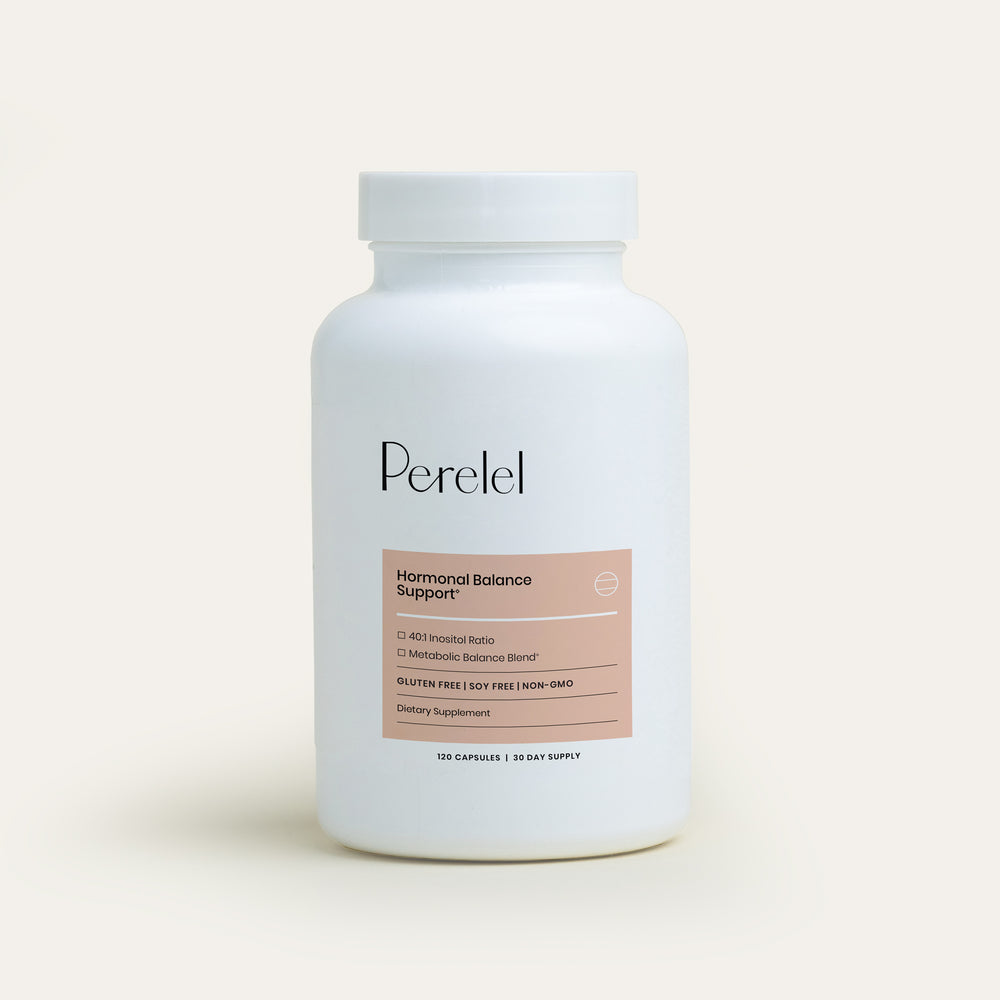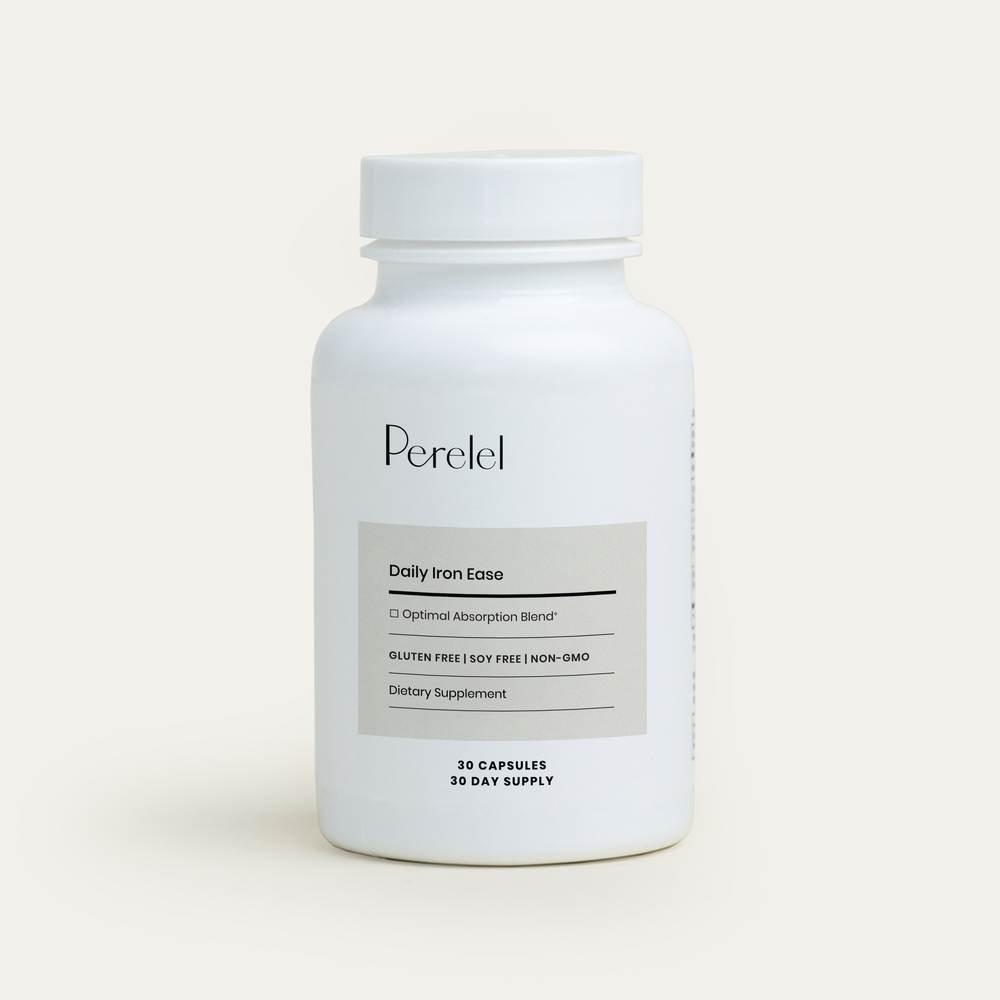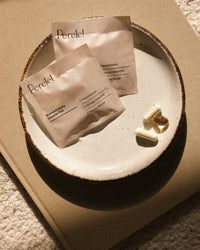If you’ve ever felt like your anxiety, fatigue, or mood swings intensify right before your period—and your usual go-tos stop working—you’re not alone. And you’re not imagining it. This lesser-known experience has a name: premenstrual exacerbation, or PME.
PME happens when the symptoms of an existing condition—like ADHD, depression, or even eczema—flare during the second half of your cycle. It’s not a new diagnosis, but it is a powerful insight into how your hormones interact with your broader health.
We believe that when you understand what’s happening in your body, you can make more confident choices to support it. Ahead, we break down the science of PME, how to spot it and the comprehensive, integrative tools that can help you feel more like yourself again.
Shop the Article:
What is premenstrual exacerbation?
Folks with chronic health conditions sometimes experience worse symptoms right before their period starts.
Let’s talk about the ins and outs of premenstrual exacerbation (PME) and how it can affect your health.
When does PME happen in my cycle?
PME usually happens one to two weeks before your period starts during the luteal phase of your menstrual cycle.
The luteal phase is the time between ovulation (when your ovaries release an egg) and when your period starts.
What causes it?
Researchers think PME is caused by the hormonal fluctuations that happen during your period. Some people are more sensitive to these changes, possibly because of their genetics.
What conditions can it affect?
PME can affect mental health and hormonal conditions, including:
-
Alcoholism
-
Attention deficit hyperactivity disorder (ADHD)
-
Borderline personality disorder (BPD)
-
Schizophrenia
-
Eating disorders
-
Posttraumatic stress disorder (PTSD)
-
Persistent depressive disorder (PDD)
-
Psychosis
-
Substance-use disorders
-
Asthma
-
Eczema
-
Irritable bowel syndrome (IBS)
What are the symptoms of PME?
-
Anxiety
-
Persistent irritability
-
Mood swings
-
Extreme fatigue
These symptoms aren’t new. They just get worse after ovulation, become harder to manage, and your medication doesn’t work as well.
How is it diagnosed?
PME isn’t recognized as its own condition. It’s usually diagnosed alongside an underlying mental health condition. To diagnose PME, your doctor might ask you to track your symptoms before your period.
Sometimes it’s confused with premenstrual dysphoric disorder (PMDD). The difference is that PMDD causes new symptoms that usually go away before your period starts.
How can I support my body?
Some treatment options for PME are:
-
Avoiding triggers like alcohol, caffeine, chocolate, and salt.
-
Doing low-impact activities like walking, swimming, cycling, or weightlifting.
-
Considering herbal remedies like chasteberry to reduce irritability, mood swings, breast tenderness, and cramps.
-
Trying acupuncture for pain relief and anxiety.
-
Maintaining a balanced diet, prioritizing quality sleep, and staying hydrated.
-
Consulting medical professionals for medications.
How do I talk about this with my doctor?
Some conversation starters you might say to your doctor include:
“Do you think my premenstrual symptoms could be PME?”
“What treatment options do you recommend for managing PME?”
“Are there any lifestyle changes or non-medication approaches that can help reduce my symptoms?”
“How often should I follow up with you to see if my treatment plan is working?”
“Are there any potential interactions or side effects if I take PME medication?”
Takeaways
Let’s look back at some key takeaways.
-
PME cause the symptoms of an underlying disorder or condition to get worse during the luteal or menstruation phases of your period.
-
It might be caused by hormonal fluctuations during periods––genetics might make some people more sensitive to these changes.
-
PME can affect mental health conditions like OCD, ADHD, and PTSD.
-
Treatment for PME focuses on managing and treating underlying mental health conditions.
-
Lifestyle changes like stress reduction techniques, regular exercise, a healthy diet, and adequate sleep can help manage PME symptoms.
This article is for informational purposes only. It is not, nor is it intended to be, a substitute for professional medical advice, diagnosis, or treatment and we recommend that you always consult with your healthcare provider. To the extent that this article features the advice of physicians or medical practitioners, the views expressed are the views of the cited expert and do not necessarily represent the views of Perelel.
Resources:
Premenstrual Exacerbation. American Journal of Psychiatry. 2019 Jun;176(6):448-448. doi: 10.1176/appi.ajp.2019.1760606.























